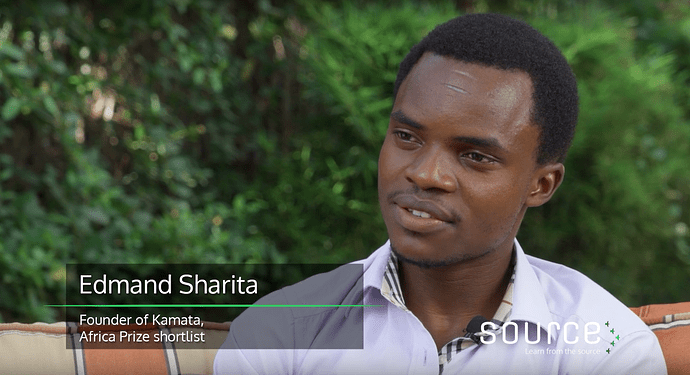Every business has a business model, whether they realize it or not. Most successful entrepreneurs put a lot of effort into getting this right. Still, often they find themselves changing and adapting to their environment.
In this lesson, we dive into how five entrepreneurs decided on their business models.
##How do Villages Pay for Electricity?
Bringing electricity to rural villages was the central goal for Matt Wainwright when he co-founded Standard Microgrid. The main problem was that there wasn’t an easy way for villagers to pay for this power. His business model had to solve that problem and be scaleable.
First, this meant making sure his grids were easy to set up and maintain. Then, it meant creating an app for payments. Each village gets a sales agent. That agent decides how much power they would like to buy from Standard Microgrid based on projected use in the village.
What this did was take the complex problem of predicting energy usage out of the hands of Matt and his company and put it into the hands of people who know these villages better than anyone. So his business model relied on these sales agents instead of selling directly to consumers.
##Charging Based on Savings
“The understanding is such that when Umeme saves a given amount, they pay a certain percentage to Mikea.”
-Edmand Sharita, Founder of Kamata, Africa Prize shortlist
Kamata is a device which prevents the theft of electricity. So Edmand’s only client will be the Ugandan power company (Umeme). So his business model had to be very tailored for them. The problem was, because he can’t simply expand to many new clients easily, he needs a way to keep making money after he’s sold his units.
So his business model is to first make money by selling the units. But then, he gets a percentage of the money which the power company saves by preventing electricity theft. This provides him with a stable and ongoing source of revenue.
“Even when the rollout is done, when the installations are done we still make money because Umeme will keep saving.”
-Edmand Sharita, Founder of Kamata, Africa Prize shortlist
##A Business Model Built on Social Impact
“We give them by rent, give them for free – let’s put it like that – and then they give us 1,000 shilling every day. 1,000 shillings like $0.5 per day.”
-Askwar and Ruth Hilonga, Founders of Gongoli Model, Africa Prize 2015
Husband and wife Askwar and Ruth Hilonga’s company makes water filters. They wanted a business model which made money, but which also made the maximum social impact. The problem was, these water filters were too expensive for individual households to purchase.
So they created a business model where they rented water filters to shops, which had the capital to rent them, instead. The result was that these filters were available to far more people and it was easier to get data about their usage. That data allows Hilonga to keep improving their product. It also makes their revenue more stable.
##A Business Model for a New Industry
“For Leti to run as as it is, we need to find ways to bring it money, and consulting is one of it because we have technology. We’ve put enough technology that can also be used for other purposes, preferably games.”
-Eyram Tawia, Co-founder of Leti Arts and the MEST Incubator
Eyram wanted to build a game making company in Ghana, the first one. So he had to create a business model for an industry which didn’t exist. Early on, he found he couldn’t sell the games he made. So he did consulting to make money to pay for the game development.
The idea then was to make the games free, as Eyram learned that selling them in Africa was very difficult, and rely on in-app purchases (like most mobile game companies do). But then another problem arose, most payment systems were blocked in Ghana.
So Leti had to shift its business model again. Now, they began working with manufacturers like Samsung and Microsoft to get their games pre-loaded onto mobile devices. Those companies then paid Leti for licenses or through revenue sharing. Once they have a larger user base, they plan on trying to sell more games directly.
##Lessons from Not Using a Business Model Canvas
“It sounds cliche’ but the business model canvas is a very useful tool.”
-Ayo Adigun, Founder of FlexiPay and DAA STEM Academy, Africa Prize 2015
Ayo Adigun decided against using a business model canvas to plan his business. Today, when asked what he would change about his business if he could go back in time, he said he would use a business model canvas to plan his business model more carefully.
“It gives you visibility of what you’re doing. You can immediately, with just a simple tool, see the growth potential and see where your target customers are and where your valuable position is. I am using key terms because that’s what is in the canvas, but it allows you to visualize your business as a whole and it’s what we then do … it allows you to ask the right questions.”
-Ayo Adigun, Founder of FlexiPay and DAA STEM Academy, Africa Prize 2015

